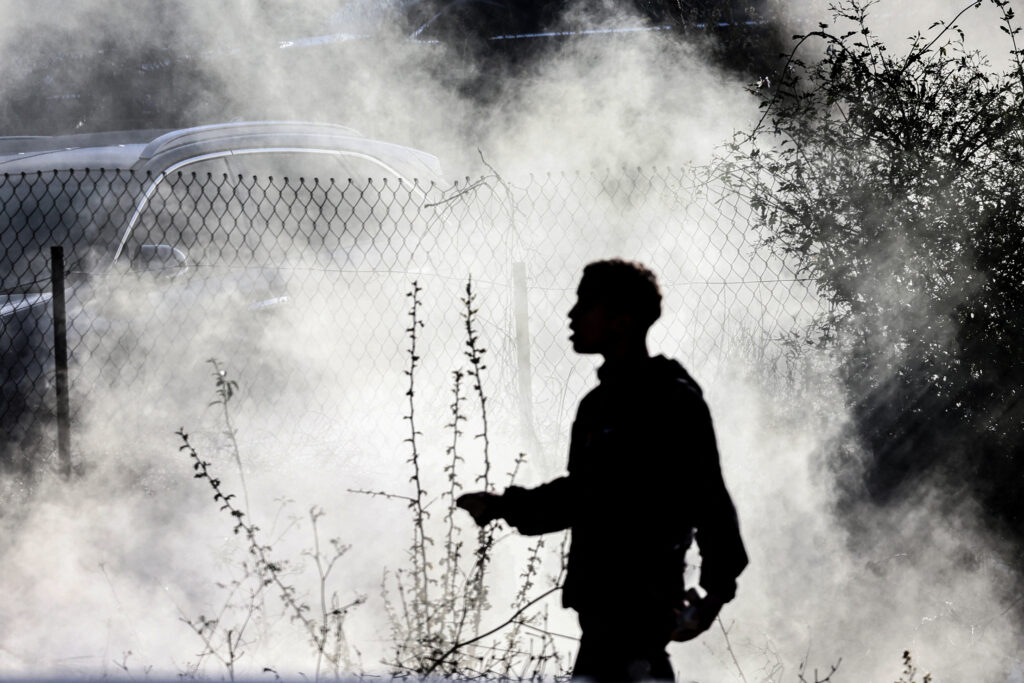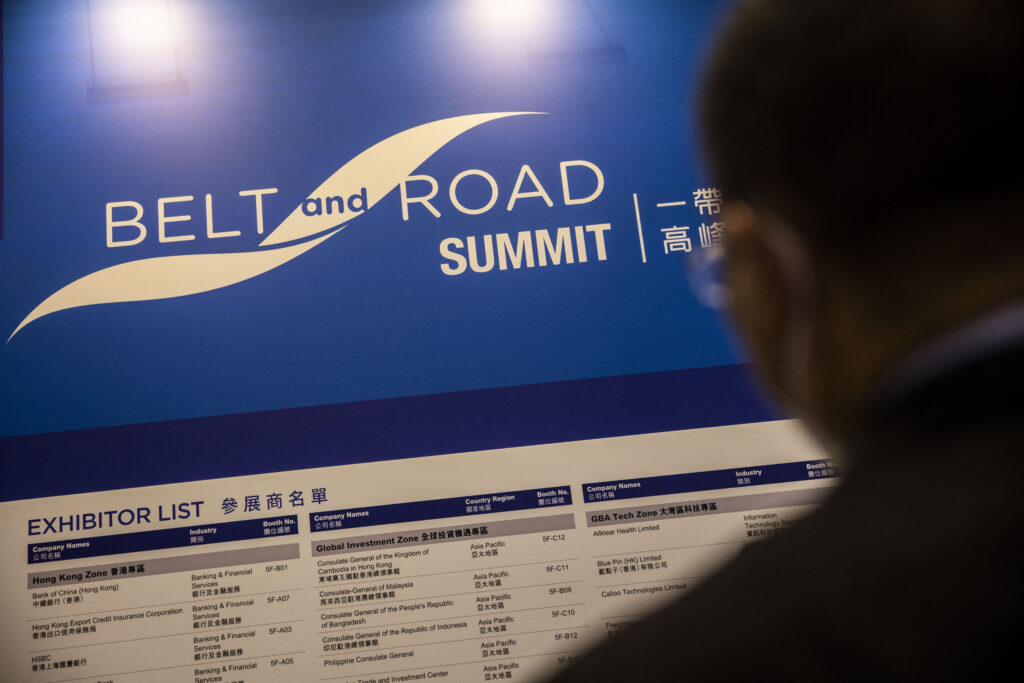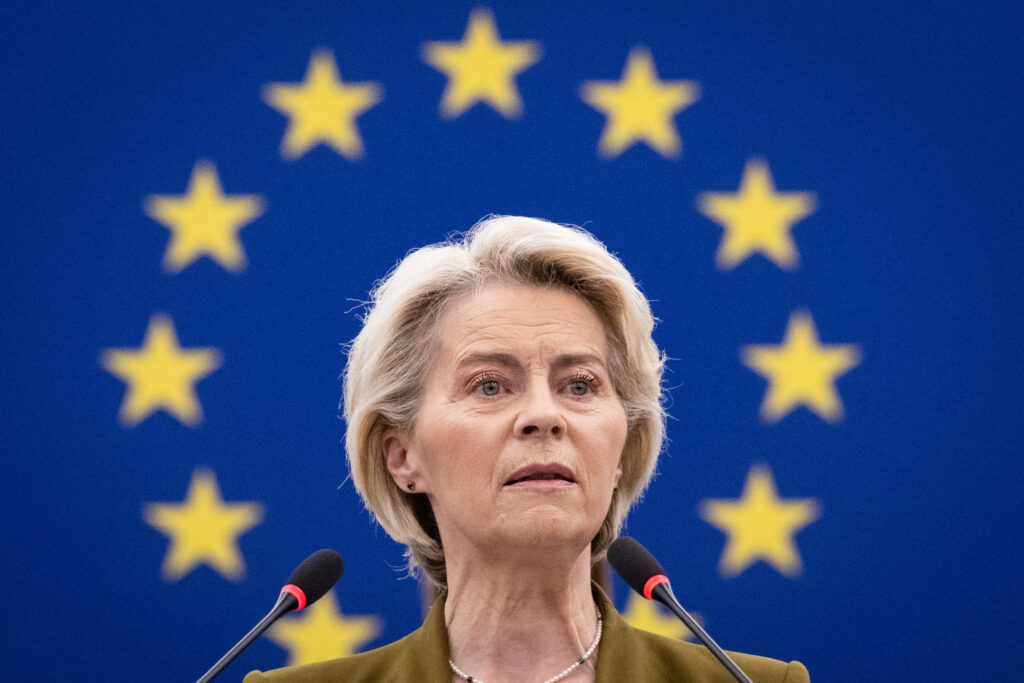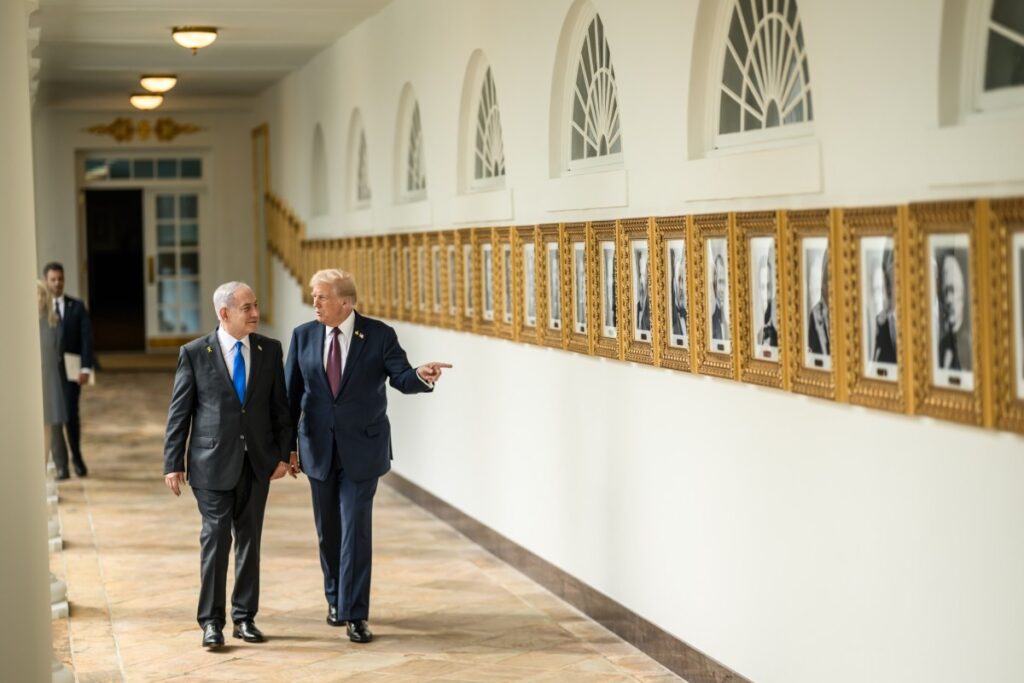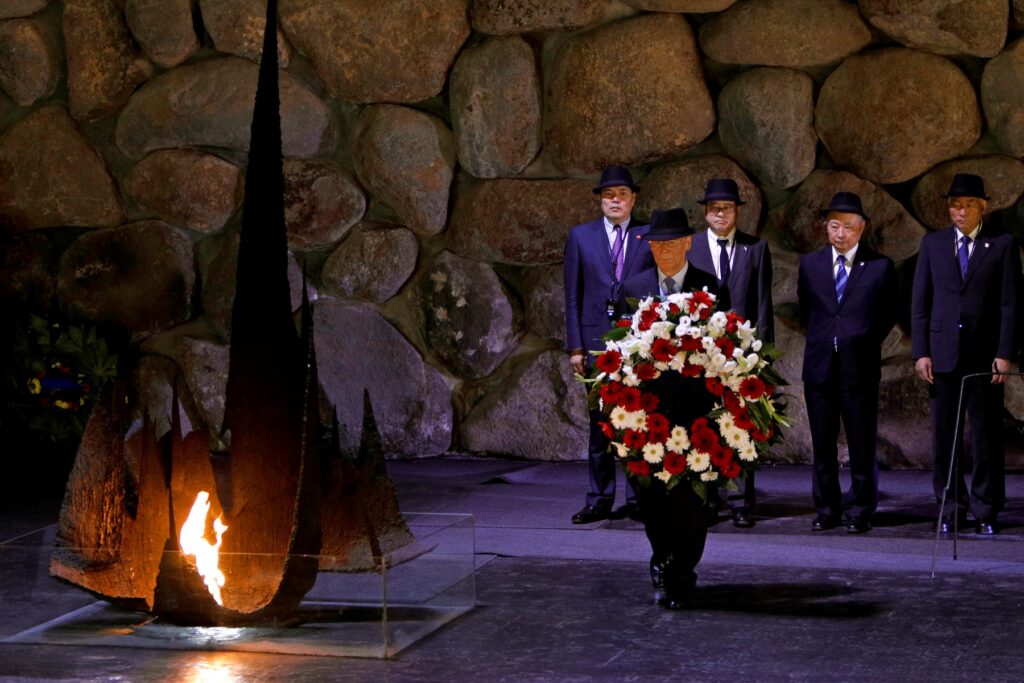
Series Introduction
Israel–Asia Relations: New Trends, Old Challenges?
Much of the scholarship on Israel’s foreign policy focuses on its relations with countries in the West or with its Arab neighbours; the significant rapprochement between Israel and countries in Asia has been largely neglected. There have been many indicators in the past decade pointing to these burgeoning ties – from China’s involvement in Israel’s infrastructure (in particular, Haifa port), the rise of Israel-India economic and security cooperation, and the expanding trade between Israel and Indonesia to the recent establishment of a new quadrilateral forum, the “I2U2”, comprising India, Israel, the United Arab Emirates and the United States.
Against the backdrop of these burgeoning relationships, the Middle East Institute at NUS convened a two-day workshop in February 2023 gathering together scholars from across the world – including Israel, China, the United States, Turkey, Indonesia, France and Singapore – to explore the depth of Israel’s partnerships across Asia. The seminar delved into the political and economic drivers of these relationships as well as their scope (and limitations). Particularly, it discussed the evolution of Israel’s policy towards China, India and Japan. It also looked into lesser known areas, such as Israel-Azerbaijan relations and the development of Holocaust studies in China. Altogether, the seminar shed light on a research topic – Israel’s Asia policy – that is likely to expand in the coming years. This is one of the papers based on the seminar.
CLICK HERE FOR THE PDF
By Xu Shijie*
The emergence of Holocaust studies in China can be attributed to the normalisation of relations between China and the Western world, particularly the United States, during the 1970s, when China started integrating itself into the global community. Until then, the Holocaust was not brought to the attention of the Chinese public. On the external front, President Nixon’s 1972 visit to China initiated the process of normalising relations between the People’s Republic of China and the United States. Simultaneously, it opened up China to Holocaust-related books and films that were prevalent in the English-speaking world.[1] Two examples of this are The Rise and Fall of the Third Reich, translated and published by Joint Publishing in 1974, and The Winds of War, published by People’s Literature Publishing House in 1975. Domestically, the implementation of economic reforms and open door policy in China from 1978 onwards also prepared China to join the process of intellectual globalisation. The establishment of diplomatic ties between China and Israel in 1992, which marked the end of China’s anti-Israeli ideology, further facilitated the development of Holocaust studies in China as a field of academic inquiry.
The Emergence of Holocaust Studies in China
Holocaust studies in China have always been closely tied to politics, no matter the silence on the topic prior to the 1970s or the boom after it. Chinese people became aware of the plight of European Jews as early as the wartime era, when an estimated 25,000 Jews fled to Shanghai and settled there.[2] Sun Ke, the leader of China’s Nationalist government, endeavoured to draft a plan for settling the Jewish refugees in southwest China. Despite the ultimate failure of this initiative due to financial constraints, China’s firm stance against anti-Semitism and its welcoming attitude towards Jews were evident.[3]
The coming to power of the Communist government in 1949 brought a turning point to China’s perception of the Holocaust. Closely allied with the Soviet Union from 1949 to 1959, nascent China, like many other countries under communist rule,[4] adopted the Soviet interpretation of the Second World War.[5] Struggling against nationalism, Soviet historians omitted the background of the Nazis’ victims in their writing of the war’s history. The Jewish identity of the victims was not emphasised, nor was the Jewish suffering (the Holocaust), as the Soviets believed that portraying the Jewish tragedy as a unique phenomenon would promote the development of Jewish nationalism. Instead, the Soviets referred to all of the Nazis’ victims as “peaceful Soviet citizens”.[6]
In the contemporaneous Chinese narrative of the Second World War, the idea of the Holocaust was likewise overlooked. The war narrative in Chinese historical school textbooks (which could well represent the official Chinese narrative) neither emphasised nor even mentioned the concept of racism when talking about the Nazi atrocities in Europe. Instead, China referred to people worldwide who suffered from fascist rule as “the victims of fascism”. In the following decade, despite the political break between China and the Soviet Union, the Chinese narrative remained the same, making it virtually impossible for Chinese scholars to conduct extensive Holocaust studies.[7]
The shift in the political climate in China in the 1970s, prompted by Nixon’s visit in 1972 and China’s economic reforms and open door policy in 1978 enabled China to join in the process of intellectual globalisation, preparing the country to initiate Holocaust studies. Then, in 1992, with the formal rapprochement between China and Israel after several years of negotiations, Holocaust studies were established in China. A major sign of this development was the increasing number of books and articles published in the Chinese language on a variety of Jewish and Israeli topics. Along with translated works, books related to the Holocaust that were originally written by Chinese scholars started to appear on the Chinese book market. For instance, 600 Wan Youtai Ren Hun Duan Ouluoba: Di Er Ci Shijie Da Zhan Zhong Nacui Tusha Youtai Ren Ji Shi [Six Million Jews Dying in Europe: The Record of the Nazi Holocaust in World War II] written by Zhu Jianjin and published in 1995 is one of the works that specifically focus on the history of the Holocaust. The 1992 book Shanghai Youtai Ren [The Jews in Shanghai] by Tang Peiji is another academic work published at a relatively early stage that contained a description of the Holocaust. Moreover, several research institutions began holding domestic and international conferences on Holocaust/Jewish studies.
After the initial development of Holocaust studies in China, Chinese scholars started attempting a comparative approach to Holocaust studies in the late 1990s. The Nanking Massacre and Auschwitz Concentration Camp by Chen Chune and Zhang Yikang published in 1995 is one of the pioneering works in this regard. In the following decades, such works increased in volume. The Nanking Massacre, carried out by Japanese troops in the Chinese city of Nanking during the Second World War, has become the most commonly used case to compare with the Holocaust although it could not be defined as a genocide according to the UN’s definition. The comparisons in these Chinese works mainly focus on the details of the mass killings, the causes of the atrocities – imperialism, fascism, and racism are usually held as the common causes of the two events – and the post-war attitudes of Germany and Japan towards their wartime crimes, with Germany’s willingness to confess its crimes being held in sharp contrast with Japan’s resistance to doing likewise.[8]
A similar trend can be observed in the education sector, with Jewish/Holocaust topics being gradually upgraded in school curricula.[9] Since the 21st century, fascist atrocities during the Second World War have been incorporated into secondary school history textbooks as part of a section devoted to the history of the war. From 2007 onwards, the narratives of the Nanking Massacre and the Holocaust started to be paralleled in the textbooks. Apart from in-class lessons, students are assigned homework that compares German and Japanese attitudes towards the crimes they committed during the war.[10]
Furthermore, there has been an increasing interest in exploring the shared history of the Chinese and Jewish peoples. The history of the Shanghai and Harbin Jews during the Second World War has emerged as a popular topic in academic circles. Numerous examples can be found in publications by the Shanghai Centre for Jewish Studies, which was established in 1988. These include Jinian Naxie Toushen Zhong Gong Fan Faxisi Tongyi Zhanxian De Guoji Youren – Yi Shanghai Wei Qieru Dian [A commemoration of the international friends who joined the Communist Party’s anti-fascist united front – Shanghai as a starting point], Youtai Ren Zai Zhongguo: Chuanqi, Shishi He Toushi [Jews in China: Legend, History, and Perspective], and Youtai Binan Shi Shang De “Zhongguo Moshi” [The “Chinese Model” in the History of Jewish Asylum], all written by Pan Guang, a leading scholar in China in the fields of Holocaust studies and Jewish studies. Additionally, numerous studies appeared on the history of Harbin Jews and the Jewish heritage in Harbin, such as Harbin Youtai Qiaomin Shi [A History of the Jews of Harbin] by Liu Shuang and 20 Shiji Shang Ban Qi Harbin Youtair Ren De Zongjiao Shenghuo Yu Zhengzhi Shenghuo [Harbin Jews in the Early 20th Century: Their Political and Religious Lives] by Wang Zhijun and Li Wei. All these works illustrated that the diaspora of European Jews and the intertwining of Jewish and Chinese history in the modern era were primarily caused by European anti-Semitism. Moreover, these works stress that Jews in China experienced relatively normal lives, in contrast to their unfortunate experiences in Europe, as anti-Semitism never took root in China.
With the efforts of Chinese scholars in the past four decades, Holocaust studies in China have moved out of their infancy. The increasing number of publications reflects two main research interests: (i) comparative studies of the Holocaust, often using the Nanking Massacre as a reference point; and (ii) explorations of the shared history of the Jewish and Chinese peoples, examining the Jewish experience in China before, during and after the Holocaust. Both approaches have led to the indigenisation of the Holocaust in China, linking together seemingly unconnected groups of people – Chinese and Jews.
Holocaust Studies and Sino-Israeli Relations
Although it would be an exaggeration to say that the rise of Holocaust studies in China is purely the result of China’s political climate change since the 1970s, politics has nevertheless played a decisive role in the development of Holocaust studies in China. In turn, China’s opening of Holocaust discourse and its engagement in Holocaust studies have also had some positive political implications for Sino-Israeli relations.
The relationship between China and Israel is primarily based on mutual interests, particularly in the areas of economics and technology. The increasing volume of bilateral trade between the two countries[11] and the growing investment by Chinese companies in Israeli advanced technologies[12] have been significant factors driving the development of their relationship, although the announcement of China’s strategic plan (“Made in China 2025”) is expected to create direct competition in the hi-tech sector between the two countries in the future.[13]
In the economics-driven bilateral relations between China and Israel, the influence of Holocaust history appears to hold relatively less weight in shaping China’s diplomatic policy towards Israel. However, it is still essential to note that recognising each other’s histories remains a crucial foundation for their relationship, and the Holocaust has become a significant factor in this process. Recent trends suggest that the Holocaust has gradually been incorporated into Sino-Israeli diplomacy, serving as a bridge linking the two nations through their shared history to facilitate future communication. This is evident in the frequent references to the Holocaust in diplomatic discourse and activities between China and Israel.
As interest in the study of the Shanghai and Harbin Jews has grown, several related institutions have been established or reopened in these two cities, including the Shanghai Jewish Refugee Museum, which was established in 2007 with the Ohel Moshe Synagogue as its main body, and the Harbin Jewish Cemetery, which has been repaired several times since 1977.
However, these Holocaust memorial sites have gradually taken on political roles. Holocaust commemoration has always been a part of Israel’s state visits to China, and the Holocaust institutions in China have thus become significant diplomatic venues. Ehud Olmert, who was Israel’s prime minister from 2006 to 2009 and has family roots in Harbin, made multiple visits to China. During his visit in 2004, when he was vice prime minister, he visited his grandfather’s grave at the Harbin Jewish Cemetery.[14] He said his family’s wartime sojourn in China left him with a profound memory of the country. His public speech expressed his wish for greater friendship between China and Israel. He was quoted as saying: “My grandfather will remain here forever, so this place is of great significance to me. … The place has become the symbol of the friendship between China and Israel.”[15] Similar expressions of affinity were used to maintain the partnership between Israel and China during his 2007 tour:
China is the country which hosted our parents. They studied in China. They spoke Chinese, and the Chinese culture is part of my heritage and memory as a young kid in the State of Israel. So China is not just another country for me.[16]
In addition to maintaining a positive relationship with China, the primary objective of Olmert’s state visit on that occasion was to seek China’s support regarding the Iranian nuclear issue. Israel faced an increasingly significant threat from the Iranian nuclear project, and China potentially held the capability to play a growing role in Middle Eastern affairs.[17] Although Olmert is no longer a member of Israel’s ruling elite, his political influence on Sino-Israeli affairs may not have completely diminished. In 2021, he published an article in The Jerusalem Post advocating that Israel maintain its economic ties with China despite America’s ongoing economic war against China.[18] In 2013, when Olmert’s successor as prime minister, Benjamin Netanyahu, made an official trip to China, he visited the Shanghai Jewish Refugee Museum, a Holocaust memorial site. Netanyahu lauded Shanghai for its role as a haven for Jewish refugees fleeing Nazi persecution.[19]
Commemorating the Holocaust and expressing sympathy for the Jewish victims has also been part of Chinese leaders’ routine during state visits to Israel. In 2000, China’s then president, Jiang Zemin, undertook his country’s first state visit to Israel. As part of his six-day visit, President Jiang went to the Yad Vashem Holocaust Memorial, where he signed the guest book and laid wreaths in the Memorial Hall.[20] Following a five-year interval, Chinese Foreign Minister Li Zhaoxing visited Yad Vashem during his trip to Israel and followed the same routine.[21] More recently, in 2018, then Vice President Wang Qishan visited Yad Vashem during his Israel trip and paid his respects in a similar manner.
As history plays a significant role in shaping a country’s identity and attitudes towards other nations and peoples, China’s recognition of Jewish history, as evidenced by the opening up of Holocaust discourse, active involvement in Holocaust studies and restoration of Holocaust memorial sites, represents an important diplomatic gesture that signals China’s positive disposition towards Israel. By acknowledging the shared history and past sufferings of both the Jewish and Chinese peoples, mutual respect has been established between the two nations, which serves as a foundation for the Sino-Israeli relationship, driven primarily by common interests in the economic and hi-tech sectors.
Holocaust Studies and Views of Israel among China’s Young Generations
As noted above, the history of the Holocaust has been included as a mandatory part of the curriculum in Chinese secondary schools since the 2000s. This has not only raised awareness of the Holocaust in China but also stimulated the interest of China’s younger generations in Israel and Jewish studies. An increasing number of students are now dedicating themselves to these fields, with many of them writing their MA or PhD dissertations on related topics.[22] This trend has had a positive impact on the development of Israel and Jewish studies in China. Additionally, in recent years, there has been a rise in the number of pro-Israeli and Jewish-friendly discourse in China. Studying the Holocaust alongside the Nanking Massacre provides a shared psychological foundation for Chinese students to empathise with the past sufferings of the Jews. While this phenomenon may lead to a more positive view of Israel and Jews among Chinese youths, it also carries the potential to generate a bias in their perspective of the Israeli-Palestinian conflict.
Image Caption: Chinese Vice President Wang Qishan lays a wreath at the Hall of Remembrance on October 24, 2018 during his visit to the Yad Vashem Holocaust Memorial museum in Jerusalem commemorating the six million Jews killed by the German Nazis and their collaborators during World War II. Photo: Gali Tibbon / Pool / AFP
About the Author
*Ms Xu Shijie is a PhD candidate at the University of Exeter. Her current research focuses on the historiography of the Holocaust in China as a case study examining the third world’s view of the Holocaust.
End Notes
[1] Miles William F. S, “Third World Views of the Holocaust”, Journal of Genocide Research 6, no. 3 (2004): 371–93, https://doi.org/10.1080/1462352042000265855.
[2] Wang Jian, “Tracking the Exact Number of Jewish Refugees in Shanghai”, in China and Ashkenazic Jewry: Transcultural Encounters, ed. Kathryn Hellerstein and Lihong Song (Oldenbourg: De Gruyter Press, 2022), 129–44.
[3] Saunders Harril, “Importing Development: The Chinese Nationalists Embrace of Jewish Settlement Plans during World War II”, Penn History Review, no. 6 (2022): 102–34.
[4] For instance, according to the Second World War narrative in socialist Yugoslavia, all victims of the war were defined as “victims of fascism”, without addressing their ethnic backgrounds. Vervaet Stijn, Holocaust, War and Transnational Memory: Testimony from Yugoslav and Post-Yugoslav Literature (New York: Routledge, 2018), xi–xix.
[5] Goldstein Jonathan, “Holocaust and Jewish Studies in Modern China: Functions of a Political Agenda”, in Holocaust Memory in a Globalizing World, ed. Jacob S. Eder, Philipp Gassert, and Alan E. Steinweis (Göttingen: Wallstein Verlag), 228–44.
[6] Hnatiuk Ola, “How the Soviet Union Suppressed the Holocaust to Fight ‘Nationalism’”, Ukrainian Jewish Encounter, https://ukrainianjewishencounter.org/en/soviet-union-suppressed-holocaust-fight-nationalism/.
[7] Xin Xu, “Holocaust Studies in China”, Journal of Henan, no. 23 (2003): 101–103.
[8] See Xu Saifeng, “Zhanbai Qian Riben de Zhongzu Zhuyi Ji Qi Tezheng – Yu Nacui Deguo Xiang Bijiao [‘Racism’ in Japanese Fascist Thought and Its Features – Compared with Nazi Germany]”, Journal of Beihua University, no. 2 (2020): 99–107. See also, Ma Zhendu, “Qinhua Rijun Baoxing Yu Nacui Baoxing Yuanyin Bijiao Yanjiu Chutan [A Comparative Study of the Causes of Japanese Atrocities and Nazi Atrocities”, Journal of Republican Archives, no. 2 (2007): 120–28. Yang Xiaming and Neil Gregor, “Nacui Tusha Yu Nanjing Baoxing de Yanjiu: Fanshi Zhuanbian Yu Bijiao Qishi [Holocaust Historiography and Nanking Atrocity – Paradigm Shift and New Perspectives]”, Journal of Nanking University, no. 3 (2010): 83–93.
[9] Goldstein Jonathan, “Holocaust and Jewish Studies in Modern China. Functions of a Political Agenda”, in Holocaust Memory in a Globalizing World, ed. Jacob S Eder, Philipp Gassert, and Alan E Steinweis (Göttingen: Wallstein Verlag, 2017), 228–44.
[10] See People’s Education Press, Lishi: Ershi Shiji de Zhanzheng Yu Heping [The War and Peace of the 20th Century] (Beijing: People’s Education Press, 2007); See also, People’s Education Press, Shijie Wenhua Yichan Huicui [World History: The Cultural Heritage Collection] (Beijing: People’s Education Press, 2007).
[11] Based on the data provided by the Observatory of Economic Complexity (OEC), it is evident that the volume of bilateral trade between China and Israel has increased significantly in the past two decades, from US$192 million (China to Israel) and US$145 million (Israel to China) in 1995 to US$13.2 billion and US$7.15 billion, respectively, in 2021. “China (CHN) and Israel (ISR) Trade | OEC”, OEC, https://oec.world/en/profile/bilateral-country/chn/partner/isr?dynamicBilateralTradeSelector=year1995&dynamicYearGeomapSelector=year1995.
[12] Ella Doron, “A Regulatory Mechanism to Oversee Foreign Investment in Israel: Security Ramifications”, INSS Insight, no. 1229 (2019): 1–4, https://www.inss.org.il/publication/a-regulatory-mechanism-to-oversee-foreign-investment-in-israel-security-ramifications/.
[13] Ella Doron, “A Regulatory Mechanism to Oversee Foreign Investment in Israel: Security Ramifications”.
[14] Li Fangchao, “Israel Deputy PM Visits Grandpa’s Harbin Grave”. China Daily, 20 June 26 2004, https://www.chinadaily.com.cn/english/doc/2004-06/26/content_342861.htm.
[15] Li Fangchao, “Israel Deputy PM Visits Grandpa’s Harbin Grave”.
[16] Goldstein Jonathan, “‘Not Just Another Country’: The Olmert Family Sojourn Through China as a Case Study of the Role of Travel in Jewish Identity Formation”, Jewish Culture and History, no.11: 267–82, https://doi.org/10.1080/1462169X.2009.10512128.
[17] “Olmert Seeks China Support on Iran”, Al Jazeera, January 9, 2007, https://www.aljazeera.com/news/2007/1/9/olmert-seeks-china-support-on-iran.
[18] Olmert Ehud, “The US Is Our Ally, China Is Not Our Enemy – Opinion”, The Jerusalem Post, 2 September 2021, https://www.jpost.com/opinion/the-us-is-our-ally-china-is-not-our-enemy-opinion-678550.
[19] “Israeli PM Benjamin Netanyahu Salutes ‘Haven’ of Shanghai”, South China Morning Post, 7 May 2013, https://www.scmp.com/news/china/article/1232285/israeli-leader-netanyahu-visits-shanghais-old-jewish-ghetto.
[20] “Israel: President Jiang Zemin’s Visit”, AP Archive, http://www.aparchive.com/metadata/youtube/07406e70c53dffd7ba019543eaac4704.
[21] Fried Stefanie and Gil Somekh, “Chinese Vice President to Visit Yad Vashem Tomorrow”, Yad Vashem, https://www.yadvashem.org/press-release/23-october-2018-08-37.html.f.
[22] According to the data provided by CNKI, the largest academic database in China, the number of MA/PhD theses including “Jew” in their titles has greatly increased since 2000, reaching a total of 2,233. In addition, there are more than 30 MA/PhD theses directly related to the Holocaust. “Search-CNKI”, CNKI, https://chn.oversea.cnki.net/kns/defaultresult/index.

